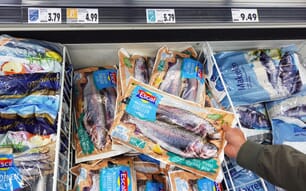EMS, also known as Acute Hepatopancreatic Necrosis Disease (AHPND), is caused by certain strains of the bacteria vibrio and has led to devastating production losses in China, Viet Nam, Malaysia, Thailand and most recently in Mexico.
With this tool, Cargill can identify the main risk factors for individual farms and provide tailored recommendations to help reduce the severity of the disease to promote shrimp survival. Outbreaks of EMS have resulted in mortality rates as high as 100 per cent.
"With comprehensive risk assessment tools we are able to develop biosecurity programmes tailored to identifying and reducing the risk of EMS losses in our customers' shrimp farms," said Ryan Lane, Cargill's global aquaculture technology director.
The EMS Risk Tool assesses the risk of EMS based on the best available knowledge of the factors associated with the disease, from seed (postlarvae), genetics, sanitary practices, environment and farm management, to shrimp nutrition and health.
Cargill – in partnership with researchers, industry and government – has been investigating strategies to help shrimp producers reduce the risk of EMS outbreaks. Cargill's EMS Risk Tool encompasses feedback and learnings from all of the EMS-affected countries, including a workshop in Mexico in November 2013.
This workshop, hosted by Cargill, brought together a wide range of academic researchers, government representatives and industry experts to share experiences and explore strategies to deal with the disease.
"This tool is the next step in our journey to mitigate the effects of EMS," added Mr Lane. "Helping shrimp producers manage risks of diseases like EMS will lead to better farming practices and can help mitigate other diseases. The Cargill technical team continues to focus on finding effective ways to combat EMS and is working closely with our customers to develop solutions."
Beyond implementing strong biosecurity practices, Cargill Animal Nutrition studies have shown that using high quality hatchery and farm feeds are better at delivering nutrients to young fish and shrimp.
Cargill's products include Liqualife®, Aquaxcel®, Purina® and Cargill® brand shrimp feeds, as well as feed lines developed specifically to help reduce the impact of EMS.




